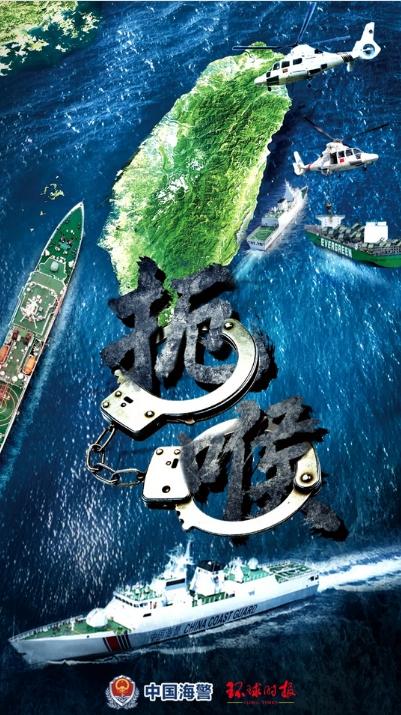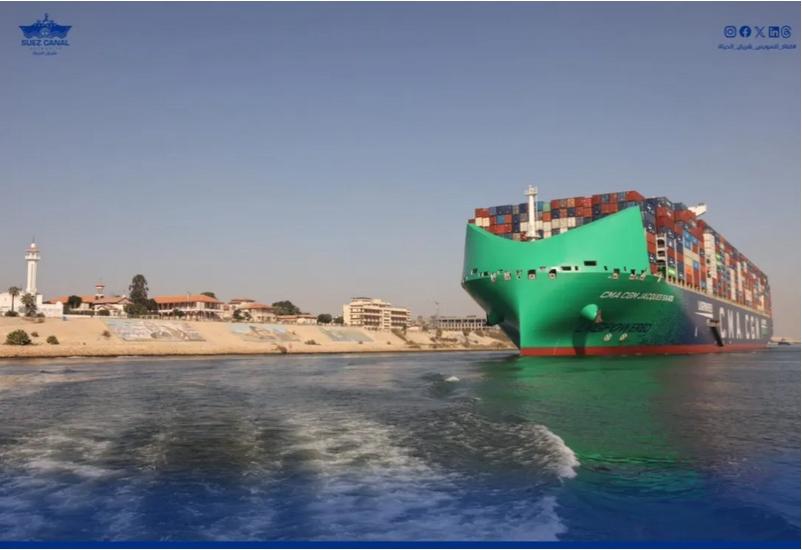【关键词】运费、赚取、灭失、Earned
前段时间有外文报道,信德海事也曾报道过,一条巴拿马型船“Sheng Ming”轮,3月30日在塞拉利昂的Pepel港装完货后前往南非的伊丽莎白港,预计抵达时间为4月17日;但是4月12日在纳米比亚外海遭遇故障,事后发现机舱进水导致。在两条拖轮的协助下,在Saldanha bay/Cape Town以西海域漂了一个多月后,AIS轨迹消失,传闻说已经沉没。
“ShengMing”轮为标准巴拿马型船,船长224.94米,船宽32.2米,载重吨71,122, 95年交付使用,至今已经有23年船龄,属于老龄船;挂巴拿马旗,福建船东,船公司注册地为香港。查核AIS轨迹,如下图,该轮2018年1月份就已经抵达Pepel锚地,3月17日移到外锚地,3月18日移回内锚地,3月30日晚上离港。


从船舶所发的预计抵港通知来看,从Pepel港装到南非的伊丽莎白港竟然需要17天,平均速度9节左右计算,很显然该轮的航速不理想,一方面是老龄船,另一方面在港时间将近三个月导致了船舶污底。市场上几乎没听过从Pepel港装到伊丽莎白港卸的货,因此可以推定该轮计划挂靠伊丽莎白港不是为了卸货,而可能是为了加油或者换船员或者别的船东事项。巴拿马型船的淡水舱都不大,在港时间近三个月,船上淡水显然消耗殆尽。
据外媒报船长希望协会补偿一个月工资,并拒绝离船;最后还通过南非大使馆出面才解决并将船长劝离船舶。协会似乎不愿意承担巨额的拖轮救助费用及维修费,也不愿提供南非政府当局要求的保证金,虽然进水可控,但还是选择让船沉没,从而导致全损。
Jun 5 Update:
The SHENGMING Master wanted the club to compensate one month salary but club refused, sohe rejected the evacuation and remained on board of distressed ship. Club called ZA government, government called Chinese ambassador in ZA, and by joining forces they solved the problem and got Captain off the ship. It is not known if he got his salary, or not.
P&I Club appears to be the one body which determined ship’s fate, finding towage and repair costs too high and writing her off as total loss.
According to Chinese source, water ingress wasn’t the main cause of SHENG MING sinking,water ingress said to be controllable. The reason she was towed further fromCape Town into ocean and sunk, is too big deposit demanded by South Africa authorities, and unreasonably high towage and repairs costs, salvage wasn’tworth it, or so I was told.
Hopefully, I’ll be able to provide more information on Jun 5.
VoytenkoMikhail
June 4, 2018
Previousnews:
Bulk carriersank after 1.5-month long towage
May 31, 2018
Bulk carrier SHENG MING reportedly sank on May 28 some 180 nm west of Cape Town, after being towed around in legsfor more than a month. Bulk carrier was under tow to Cape Town after she wasdisabled by water ingress in engine room, towage stopped some 40 nm off CapeTown, until May 23 she was towed around, on May 23 towage turned west.Probably, she was towed as far offshore as possible to avoid pollution, butstill, her sinking is a mystery. Why couldn’t she be salvaged? Maybe the shipwas doomed because of oncoming rough weather, and salvors decided to take herout to ocean as far as possible?
该轮在开普敦以西海域的部分轨迹图如下,从4月初到最终消失,长达近50天时间,船员的心理应该备受折磨。


该轮在经过一个多月的拖轮救助后,最终消失,沉没在大西洋。租约链条上涉及福建船东,国内OP公司(二船东),国内某钢厂(收货人及程租航次的租家)。船舶沉没乃重大事故,但国内竟然鲜有新闻报道。据说是尾轴进水,但没有严重到失控状态;南非政府要求提供保证金,但协会不愿意。这一切看起来似乎很诡异,该轮沉没的真正的原因可能永远是个迷了。
现在回到本文的重点,当事人上周前来咨询笔者关于运费支付的问题,是否在船,货灭失后,就无需再支付运费。在之前文章简单说过运费支付的一些基本原则,再重提一下。在英国普通法下,如果合同中对运费支付没有明确约定的话,那么通常出租人需要将货物安全运抵卸货港,交付给收货人,此时才可以主张运费。如果仅仅载运了部分货物,那么只对所载运的货物享有运费权;如果货物灭失了,那么将无权享有运费。除非在合同中作了相反的规定,比如运费在完货后即视为已赚取,或者在签发提单某个工作日能需支付等等,这类通常可以说是运费提前支付的情景;不然承租人将仅在船舶抵达卸货港交付货物后才有义务支付运费。
比如Asfar v Blundell [1896] 1 QB 123,CA案。在该案中,The“Govino”轮上载运货物的提单约定,在伦敦正确交付货物后需支付运费;然而该轮在泰晤士河与其它船舶相撞沉没。随后被打捞起来,但发现货物已经不再适合人类食用。审判法院认为发生事故后的椰枣不可能作为运费支付的椰枣,尽管一些比例仍然可以识别,而且货物仍然很有价值,并以2400英镑的价格出售用于蒸馏。驳回承运人承担运费保险责任的保险人提出的索赔运费主张,认定收货人无需支付运费。
上诉法院的Esher勋爵认为,这个上诉应该被驳回。代表被告保险人的第一个观点是,椰枣没有全损,因此没有完全损失运费。Esher勋爵认为这个论点的独创性可能会推荐给一群化学家,但不是商人。本案是处理椰枣作为商业的主题;有人认为,虽然这些椰枣在水下持续了两天,但当打捞的时候,只是一小块浸满污水和发酵状态的泥状物质,它们的性质没有变化,它们仍然是椰枣。有一个完全众所周知的标准,多年来一直用于现在这样的情况-标准是,作为一个商业问题,事物的性质是否已被改变。事物的本质并不一定会改变因为事物本身已经被破坏;小麦或大米可能会受到损害,但在商业中可能仍然是小麦或大米处理的东西。但是,如果事物的性质发生了变化,并且为了商业目的而变成别的东西,那么商业人士就不会将它作为原来的东西来处理,要确定的问题是被保险人的原始商品是否已经全损。如果它由于海上的危险而变得本质上变成了一种不可买卖的东西,没有买家愿意购买,也没有诚实的卖家会出售,那么就为全损。这种标准在本案中是由在下面的法庭上博学的法官,他认定椰枣变得如此恶化,以至于他们变成了不可作为椰枣出售的东西。如果是这样的话,那么椰枣就为全损。这对保险产生了什么影响?如果椰枣已经全损,那么收货人就不应该向提单人也就是承租人支付运费,对于这些椰枣的提单运费已经全损。
I am of opinion that this appeal should be dismissed. The first point taken on behalf of the defendants, the underwriters, is that there has been no total loss of the dates, and therefore no total loss of the freigh ton them.The ingenuity of the argument might commend itself to a body ofchemists, but not to businessmen. We are dealing with dates as subject matter of commerce; and it is contended that, although these dates were under water for two days, and when brought up were simply a mass of pulpy matter impregnated with sewage and in a state of fermentation, there had been nochange in their nature, and they still were dates. There is a perfectly wellknown test which has for many years been applied to such cases as the present –that test is whether, as a matter of business, the nature of the thing has beenaltered. The nature of a thing is not necessarily altered because the thingitself has been damaged; wheat or rice may be damaged, but may still remain the things dealt with as wheat or rice in business. But if the nature of the thingis altered, and it becomes for business purposes something else, so that it isnot dealt with by business people as the thing which it originally was, thequestion for determination is whether the thing insured, the original articleof commerce, has become a total loss. If it is so changed in its nature by the perils of the sea as to become an unmerchantable thing, which no buyer wouldbuy and no honest seller would sell, then there is a total loss.That test wasapplied in the present case by the learned judge in the court below, who decided as a fact that the dates had been so deteriorated that they had becomesomething which was not merchantable as dates. If that was so, there was atotal loss of the dates. What was the effect of this upon the insurance? Ifthey were totally lost as dates, no freight in respect of them became due fromthe consignee to the person to whom the bill of lading freight was payable –that is, to the charterers – and there was a total loss of the bill of lading freight on these dates .
因此如果合同中没有相反的规定,一旦发生货物灭失,那么承租人或者收货人将无需支付运费,出租人将处于异常被动的局面。这方面的问题可以参《Voyage Charter》Chapter13-Freight, 13.2,如下:
13.2 In order to earn freight, the shipowner must,unless otherwise agreed, carry the cargo to the destination provided for in thecharterparty and be ready to deliver it there. If he fails to deliver any cargo, no freight is payable; if he delivers part of the cargo loaded, it is payable only on the part delivered. The principle was stated by Willes J. as follows:
… the true test of the right to freight is the question whether the service in respect of which the freight was contracted to be paid has been substantially performed; and according to the law of England, as a rule,freight is earned by the carriage and arrival of the goods ready to be delivered to the merchant, though they may be in a damaged state when they arrive. If the shipowner fails to carry the goods for the merchant to the destined port, the freight is not earned. If he carries part, but not the whole, no freight ispayable in respect of the part not carried, and freight is payable in respectof the part carried unless the charterparty makes the carriage of the whole acondition precedent to the earning of any freight—a case which has not within our experience arisen in practice …
(Dakin v. Oxley (1864) 15 C.B. (N.S.) 646, per WillesJ. at pp. 664-665.)
在航运实践中,租船合同中通常会对运费支付做规定。广义而言,这些条款有两种形式。一种是规定运费在完货后签发并释放提单多少个工作日内支付,也有一些为了贸易需要,签发运费预付提单,这时候必须得先支付运费才能同意签发此类预付提单。另一种是,规定运费应该在交货前的规定时间内支付或到期应付,或者完货后即视为已赚取,而不管货物灭失与否。当然也有将这两种形式结合起来,比较少见,规定运费必须在船舶安全抵达并交货才支付的情况。
在此基础上,笔者就“Sheng Ming”轮租船合同的具体条款作详细分析,来说说在船货灭失后,是否需要再支付剩余的运费问题。
一、 运费条款
租船合同第6条关于运费的规定如下:
6. Freight Rate
(a) Freight to be paid in US Dollars at the rateas stipulated in Box 14 and shall be inclusive of all Port Charges, Pilotage, Light Dues, Port Agency Fees, any and all other taxes and dues and any other dues usually paid by vessel.
运费按照第14栏规定的费率以美元支付,包含所有港口费用,引水费,灯塔费,港口代理费,任何和所有其他税款和费用以及通常由船舶支付的任何其他费用。
(b) Freight is to be deemed earned upon 1) reception from the Owners’ master to the charterers on signing authority certificate of original BLs to the shipping agent on behalf of Master before loading the vessel and 2) completion of load, discount-less,non-returnable, vessel and or cargo lost or not lost.
运费即可视为已赚取当1)在装货前承租人收到船东的船长授权给代理,代表船长签发正本提单的授权书,及2)完成装货,不打折,不退还,无论船舶或货物灭失与否。
第6条(a)款规定按合同前面第14栏规定的费率来支付,第14栏除了规定运价,没有其他信息,这点上没有争议。而对于(b)款的规定,笔者认为对承租人非常不利,以下就具体措辞展开解释说明。
Freight is to be deemed earned
关于这个运费视为已赚取的问题,首先来看一个贵族院判例,The“Dominique”, (H.L.) [1989] 1 Lloyd's Rep.431案。
在该案中,由于出租人自身的债务问题,在1982年4月14日与银行签订了一份转让协议,出租人将Dominique轮的收入,包括所有运费转让给银行。出租人在1982年6月16日与承租人签订了一份程租合同,出租人派将Dominique轮去执行承租人从印度的Kakinada装一批散装的农产品运往欧洲港口。该轮在1982年6月28日至7月13日期间在Kakinada装完货,并在1982年7月14日期间签署的各种包裹货物的提单。当天,Dominique轮离开Kakinda,开往Colombo添加燃油。大约与此同时,银行收到通知,从1982年6月28日起,该船的协会承保将被取消,并因此向承租人发出了前面提到的转让的书面通知。1982年7月19日,该轮抵达Colombo,但被以前的燃油供应商扣押。承租人和银行都明白,出租人已经没有资金可以促使船舶被释放,保赔协会也不会帮助出租人他们。通过1982年7月22日承租人发送给出租人的电报,承租人认为他们有理由选择将出租人行为视为对租船合同的毁约。在1982年7月26日,以前签署的所有提单都已经交还给托运人。1982年8月12日,承租人在Colombo获得法院许可将货物从该轮卸下。在1982年9月期间,这些卸货后的货物被转运到另一艘船上。该船随后将货物运往欧洲港口,在1982年11月卸完。Dominique轮后来在Colombo被法院命令出售。
承租人在Colombo卸货和运输货物的费用,并将其运往欧洲港口并在那里卸货,超过了银行向其索赔的预付运费。租船合同在Gencon格式上进行了一些变更,一系列附加分类条款和附录,并受英国法律管辖。有关支付预付运费的基本条款是附加打字条款中第16条,描述如下:
16. Freight shall be prepaid within five days of signing and surrender of final bills of lading, full freight deemed to be earned on signing bills of lading, discountless and non-returnable, vessel and/or cargo lost or not lost and to be paid to[a named bank in the Piraeus].
承租人对于银行所主张的支付预付运费的责任有争议,基于两个理由。第一个理由是,承租人接受了出租人的毁约,在出租人依据合同第16条累积运费之前合法地终止了租约;第二个理由是,如果与第一种情况相反,出租人在合同第16条下的运费在租船合同终止前已经累积,承租人有权抵扣银行的索赔,要求他们赔偿由于出租人毁约而遭受的损失。
贵族院的Brandonof Oakbrook勋爵认为,关于出租人对运费的权利,取决于两方面的问题,第一为仲裁员的事实认定;第二为租船合同第16条的真正解释。就第一个仲裁员认定的事情而言,仲裁员认为相关事件的先后顺序如下:(i)1982年7月14日签署提单已经完成;(ii)1982年7月22日,因承租人接受出租人的毁约而导致租约终止;(iii)截至7月26日,所有提单均已交还给托运人。仲裁员在上述事件(iii)中使用的表述“在7月26日之前”在某种意义上是模棱两可的,因为根据字面解释,它可能指不迟于7月26日的任何日期,包括早于7月22日的日期。然而,Brandonof Oakbrook勋爵想提出的推论是,虽然仲裁员无法确定日期,但他们认为晚于7月22日。无论如何,只要在7月22日租船合同终止之前,他们已经认定提单交出已经完成,但他们未能获得这样的认定,那么就对银行有利。
So far as the first matter is concerned the arbitrators found the sequence of the relevant events to have been as follows: (i) on July 14, 1982 the signing of the bills of lading was completed; (ii) on July 22, 1982 the charter-party was terminated by the charterers' acceptance of the owners' repudiation of it; and (iii) by July 26 all the bills of lading had been surrendered to the shippers. The expression "by 26 July", used by the arbitrators in relation to event (iii)above, is in a sense equivocal, in that, on a literal interpretation, it might refer to any date not later than July 26, including a date earlier than July22. The inference which I would draw, however, is that, while the arbitrators were unable to fix the date with certainty, they were satisfied that it was later than July 22. In any case, in so far as it would be to the advantage of the bank to have had a finding that the surrender of the bills of lading was completed before the termination of the charter-party onJuly 22, they failed to obtain such finding.
就第二个问题而言,下级两个法院承认;租船合同很难解释,被混淆。主要困难来自于该条款第一句话之间的明显冲突,该条款的内容是“运费应在签署和交出最终提单后五天内预付”,第二句话“全额运费在签发提单时即视为已赚取”。对于银行而言,认为这两个短语合在一起的原因是出租人在完成所有提单签署后产生运费的权利,但是付款被推迟到提单已经被签署后五天,交付给托运人。在此基础上,出租人的运费权于1982年7月14日早于7月22日租船合同终止之前产生。对于承租人而言,认为他们有义务支付运费和出租人相应的权利被支付的运费都是受管辖的,并且仅由第一句措辞支配。在此基础上,Brandonof Oakbrook勋爵认为在1982年7月22日以后出租人获得运费的权利已产生。
So far as the second matter is concerned, it was recognized by both Courts below that cl. 16 of thecharter-party is confusingly drawn and because of that difficult to interpret.The main difficulty arises from the apparent conflict between the first phrase of the clause, which reads "freight shall be prepaid within five days of signing and surrender of final bills of lading", and the second phrase,which reads "full freight deemed to be earned on signing bills oflading". For the bank it was contended that the effect of the two phrases taken together was that the owners' right to the freight accrued on completion of the signing of all the bills of lading, but payment was postponed until five days after the bills of lading, having been signed, were delivered to the shippers. On this basis the owners' right to freight accrued on July 14, 1982,well before the termination of the charter-party on July 22. For the charterersit was contended that their obligation to pay the freight and the corresponding right of the owners to be paid the freight were both governed, and governedonly, by the first phrase. On that basis the owners' right to be paid thefreight accrued after July 22, 1982.
虽然这个问题很不容易,但Brandonof Oakbrook勋爵认为银行所持的论点优于承租人的论点。之所以采取这种观点,是因为对承租人的论点无法解释合同第16条的第二句话 “全额运费在签发提单时即视为已赚取”,而银行的论点确实已做到。这一结论符合上诉法院在Vagres Compania Maritima S.A. v.Nissho-Iwai American Corporation, [1988] 2 Lloyd's Rep. 330案中,对于租船合同中一个不同但可比较条款的判决。因此,Brandonof Oakbrook勋爵认为在租船合同终止前出租人的运费权利已经产生。
While the matter is far from easy, I consider that the contention for the bank is to be preferred to that for the charterers. The reason why I take that view is that the contention for the charterers gives no effect to the second phrase of cl. 16 "full freight deemed to be earned on signing bills of lading", whereas the contention for the bank does. This conclusion accords with the decision of the Court of Appeal on a different but comparable clause in a charter-party in Vagres Compania Maritima S.A. v. Nissho-Iwai American Corporation, [1988] 2 Lloyd'sRep. 330.
I would therefore answer question(1) by saying that the owners' right to freight accrued before the terminationof the charter-party
在本案中,贵族院大法官认为,延期付款是运费权附带的事件,但不是其产生的条件。在该租船合同终止之前无条件获得的出租人的运费权利并未在租约终止时被剥夺或解除;这种运费权利在租约终止后仍然存在。
对于本案的问题,可以参《Voyage Charter》Chapter13-Freight, 13.112如下,当租船合同已规定运费在货物装船或其他任何列明的时间即视为已赚取或到期应付,那么即使晚于该时间仍然未付,运费在其赚取的时候已经产生,因此即使随后租船合同由于受阻而终止,或者承租人接受出租人毁约,在付款时间到达之前也应支付。
13.112 Where the charter provides that the freight shall be “earned” or “due” on shipment or at any other specified time, even though not payable until a later date, freight becomes an accrueddebt at the time when it is earned, and therefore remains payable even if thecharter is subsequently terminated by frustration or by the charterer’s acceptance of the owner’s repudiation, before the time for payment arrives.
因此在此措辞下“freight is to be deemed earned”,“Sheng Ming”轮的承租人将不得支付运费,即使该轮沉没导致租约受阻终止,在付款时间到达之前也应该支付。
关于条件(a),笔者认为租约起草者似乎对措辞把握得不是十分运用自如,想表达的无非是在完货后,船长需发签发提单的授权书给代理,完全可以简明扼要地表达如下:The Master should send his authorization to the agent to sign original Bs/L for and on behalf of the Master after complete of loading。这里after或者before,影响不大;承租人如果认为应该在装货前收到船长给代理的签发提单的授权书,从而声称出租人违反而拒绝支付运费,但很显然不会获支持。
接下来看,“completion of load”,这个没有什么歧义,就是需完货后才需支付运费。关于这个“discount-less”,和“without discount”意思一样。该措辞的目的是为了防止承租人根据港口的任何习惯从而要求运费打折;但是该措辞并不影响承租人根据租船合同条款所明确或暗示的可抵销的任何款项抵扣运费的权利。这方面的可以参《Voyage Charter》Chapter 13-Freight,13.61及13.62如下。
13.61 The purpose of these words appears to be to prevent the charterer from claiming a discount on freight in accordance with any custom of the port to that effect. For example, in Brown v. Byrne, freight on a cargo of cotton was payable on discharge at Liverpool, and it was held that the receiver was entitled to a discount on freight in accordance with the custom of that port. However, a custom cannot prevail if it is inconsistent with the express terms of the contract.
13.62 The words “without discount” donot affect the right of the charterer to set off against freight any sums which, under the terms of the charter, the charterer is expressly or by implication permitted to set off, such as advances made under the second paragraph of clause 4.
关于“Non-returnable,vessel and or cargo lost or not lost”的解释问题,可以参The “LornaI”(C.A.)[1983] 1 Lloyd’s Rep.373案。
在该案中,出租人派The “Lorna I” 轮给承租人,去执行在阿尔巴尼亚的Durres港装货到罗马尼亚的Danube港卸的航次任务,提单在1977年12月6日签发。该轮在12月10日晚上约2000穿过博斯普鲁斯海峡进入黑海后不久,遭遇了非常恶劣的天气,该轮及货物最终在12月11日2359前灭失。在灭失之前,该船的运费并未支付;出租人要求承租人按合同支付运费,但承租人拒绝支付。
合同第16条关于运费条款的描述如下:
16. Freight non returnable cargo and/or vessel lost or not lost to be paid telegraphically at owners' expense, free of discount in U.S. Dollars, to the Owners, Messrs. COMPANIA NAVERIA GENERAL S.A. c/o BANCO DI ROMA PER LA SVIZZERA- LUGANO as follows: 75% (Seventy Five percent) within 5 (Five) days after Master signed Bills of Lading and the balance after right and true delivery of the cargo and receipt of documents from discharging ports.
商事法院的Robert Goff法官(当时是)判决如下:
-Held, by Q.B. (Com. Ct.)(Robert Goff, J.), that (1) the law in relation to advance freight was that if before the date of frustration advance freight had fallen due it remained payable despite the frustration of the contract;
(2) when there was a provision in a contract that payment should be made within a certain period after a certain event there would be no breach of that obligation until the expiry of that period and the effect of that was that there was no debt for which the parties could sue in the normal course of events until after the expiry of the stated period;
(3) in cl. 16 the expression "within five days after signing bills oflading" was as inapt to describe the obligation of payment as it wouldhave been to describe the moment when the debt fell due; and the five days could not properly be described as days of grace;
(4) if the parties had wished they could have provided that the debt fell due at the time of signing bills of lading but was not payable for five daysthereafter but they had not done so and the conclusion that they had intended to provide that the debt fell due at any time before it was payable could notbe derived from cl. 16;
(5) in the circumstances, as a matter of construction of the clause the obligationto pay the 75 per cent. of freight was an obligation to pay it before the expiry of the period of five days after the master had signed the bills oflading and the question of law would be answered in the negative.
出租人不服判决,上诉。
上诉法院的John Donaldson勋爵认为,运费是将货物运到目的地并在目的交付才被视为应付。在没有特别合同条款的情况下,只有在货物运往目的地后才能获得。适用于改变这种处境的措辞形式是众所周知的,例如,“Freight to be considered earned on shipment”,即运费在装船后即视为已赚取。
Freight is the consideration payable for the carriage of the goods to and their deliveryat the destination. In the absence of special contractual provisions, it is earned only upon the delivery of the goods at their destination. Forms of words appropriate to alter this position are well known, e.g., "Freight to be considered earned on shipment"
John Donaldson勋爵认为在本案中,合同第16条没有任何文字能得出在货物装船或签署提单时运费的任何部分已赚取或被视为赚取的结果。
In the present case cl. 16 contains no words appropriate to produce the result that any part of the freight is earned, or deemed to be earned, upon shipment or onsigning bills of lading. That route is accordingly not open to the shipowners.
John Donaldson勋爵认为就他而言,无法接受出租人的任何提交,认为关于合同第16条的真正解释是,承租人没有义务在五天期限届满之前支付运费或由于运费支付任何款项,并且在此之前发生的义务的合同基础因货物和船舶的灭失而遭到破坏,租约受阻。至于另一种方法,这涉及将“不可归还”与“货物和/或船舶灭失与否”分开,这在语法上并不存在。这句话的通常含义是,如果支付了预付运费,不管货物和/或船舶是否随后灭失都不可退还,从而确认支付预付合同运费的惯例事件,要实现任何其他的解释将需要更清晰明确的措辞。
For my part I am unable to accept either submission. In my judgment, on the true construction ofcl. 16, there was no obligation to make any payment of or on account of freight until the expiration of the five-day period and before that occurred the contractual basis of the obligation had been undermined by the loss of the cargo and of the vessel and the frustration of the contract. As to the other approach, this involves a separation of the words "non returnable" from "cargo and/or vessel lost or not lost" which does not grammatically exist. The ordinary meaning of the words is that advance freight,if paid, is non-returnable whether or not the cargo and/or vessel issubsequently lost, thereby confirming the customary incident of a contract forthe payment of advance freight. To achieve any other construction would requiremuch clearer words.
基于这些原因,John Donaldson勋爵认为没有必要再对承租人另外一个关于出租人交付货物的决定保证的辩护发表任何观点,驳回出租人上诉。
In the circumstances I find it unnecessary to express any view on an alter nativedefence of circuity of action raised by the charterers. This was based upon cl.30 which, as they submitted, imposed an absolute obligation on the owners to deliver the cargo in the like good order as when shipped.
For these reasons I consider that the judgment of Mr. Justice Robert Goff was correct andI would dismiss the appeal.
O’Connor勋爵认为,很清楚,合同第16条的措辞并没有达到出租人辩护律师所声称的效果。运费是不可退还的必然性的概念,要求其已经或至少应该支付。但在本案的情况下,这笔钱并没有被支付,也未在因船舶和货物的灭失导致租约受阻前支付。如果75%的运费已经在提单签字后第三天付清了,但在第四天船舶灭失了,这种情况下承租人将无法追偿。如果该船在第六天灭失,承租人将无需再支付75%的运费。
I regret that I cannot agree with the construction for which the appellants contend because I think that they intended to achieve the result for which they contend, but I am clear that the words of the clause do not achieve that result. The concept of money being "non-returnable" of necessity requires that it has, or at least ought to have been paid over. In the present case the money had not been paid over, nor ought it to have been before the contract was frustrated by the loss of the ship and cargo.
If the 75per cent. had been paid on day three after the signing of the bills of lading and the ship lost on day four, I would hold that the respondents would not have been able to recover it. If the ship had been lost on day six, the respondents would nevertheless have had to pay the 75 per cent.
Dillon勋爵认为,法官的观点很显然是正确的,即付款的到期日是在船长签署提单后五天到期。在第五天到期之前,承租人没有违约。在此之前不必支付任何款项,即使付款是在第二天安排付款的,也可能是根据合同支付的款项,并且如果承租人在第三天进入破产清算。
On that question the Judge held, and if I may say so with respect in my judgment he was plainly right, that the due date of payment was the expiration of five days after the master had signed bills of lading. There was no default on the partof the charterers until the fifth day had expired. No payment could have been compelled before that, even though if payment had been made on, say, day two it would have been a payment under the contract and could not - fraudulent preference apart - have been recovered if, for instance, the charterers had gone into liquidation on day three.
Dillon勋爵认为在他看来,并不是完全容易的在特定合同中对几句话的简单解释问题。“货物和/或船舶灭失与否”这些措辞与之前的“不可退还”一词有关,因此仅适用于实际支付的预付运费,或者它们也适用(如果有些省略的话)到紧随其后的“待付款”字样,并因此强加一个在五天内支付的义务,尽管在灭失之前?很可能是支付75%运费的要求,在签署提单后五天内支付,以方便承租人给他们时间进行必要的银行转账,但Dillon勋爵不认为这会影响第16条的解释问题。
Dillon勋爵认为,合同第16条的自然解读是将“货物和/或船舶灭失与否”与紧接其前面的“不可退还”一词联系起来,而不涉及后面的付款规定。因此,在租船合同中中没有条款规定需要支付75%的运费,尽管在付款到期之前船舶和货物都灭失了。出租人第二个观点辩护不成功。
As I construe cl. 16, the natural reading is to relate the words "cargo and/or vessel lost or not lost" only to the word "non-returnable" which immediately precedes them and not to the provisions for payment which follow.There is thus no provision in the charter-party requiring payment of the 75 percent. despite loss of the ship and cargo before the due date of payment. The second point taken for the appellants therefore fails.
对于合同第30条的如下规定:
30. Notwithstanding contents of Clause 2 the Owners however shall not berelieved of their obligation to deliver to Charterers or Consignees the cargoas received at loading port and evidenced in the Bills of Lading.
承租人认为合同第30条取代了合同第2条,强加了出租人一个交付货物的绝对义务,如果没有除外风险。因此,船舶和货物的灭失使出租人处于违约之中,承租人可以追偿损害赔偿以及承租人按合同第16条所需要支付的任何款项。Dillon勋爵认为第30条并不是一个明确的条款,但必须在整个协议的背景之下理解,毫不怀疑,如此看来它并没有受到承租人激烈争辩的影响。最终,驳回出租人上诉。
It was said that cl. 30 abrogated cl. 2 and imposed an absolute obligation on the owners to deliver the cargo, with no excepted perils. Thus the loss of the vessel and cargo put the owners in breach of contract and the damages for breach which thecharterers can recover would include any sum the charterers were liable to pay the owners under cl. 16. Clause 30 is not a well-drawn clause, but it has to beread in the context of the agreement as a whole, and I have no doubt that, soread, it does not have the drastic effect contended for by the charterers.
I would dismiss this appeal.
类似的措辞“freight to be paid ship or cargo lost or not lost”,这种情况下风险将落在承租人身上,即使在运费到期前因为船舶或货物灭失导致租约受阻,承租人仍然需支付运费。可以参《Voyage Charter》Chapt13-Freight, 13.114如下:
13.114 The effect of such provisions as “freight to be paid ship or cargo lost or not lost” is to place the freight atthe risk of the charterer, who must therefore pay the freight even if the adventure is frustrated by loss of the ship or the cargo before the date for payment falls due.
A charterparty provided that freight should be paid on a cargo of cattle “whether delivered alive or not delivered at all” the freight being expressed to bepayable “on arrival ship lost or not lost”. The ship and cargo were lost, butit was held that the freight nevertheless became payable.
(The Queensmore (1893) 53 Fed.Rep. 1022.)
但如果这些规定将根据其条款给予适当的效果,它们将被严格解读。因此,如果不管“船舶灭失与否”需要支付运费,那么在货物灭失而不船舶灭失的情况下无需支付运费。同样,如果租船合同仅规定运费为“不可退还,货物和/或船舶灭失与否”,如果在船舶或货物灭失发生时尚未支付运费,则出租人无权主张运费。可以参《Voyage Charter》Chapt13-Freight, 13.115如下:
13.115 However, while such provisions will be given proper effect according to their terms, they will be interpreted strictly. Thus, if freight is payable “ship lost or not lost” no freight will be payable where cargo is lost without the loss of the ship. Equally,where the charter merely provides that freight is to be “non-returnable cargo and/or vessel lost or not lost” the shipowner will not be entitled to claim the freight if it has not become payable by the time of the loss of the ship orcargo.
二、运费支付
接下来来看“Sheng Ming”轮租船合同第7条关于运费支付的条款,如下:
7. Freight Payment
(a) The Charterer will pay 50% of freight on Bill of Lading weight to the Owners’ duly nominated bank account within five(5) banking days after signing and releasing Bills ofLading marked “Freight payable as per Charter Party”, against owners original freight invoice and always after submission of signed charter party and before breakingbulk at discharge port(s). For the purpose of this clause, “Banking Days” referto any day on which banks in London or New York generally conduct business.
这部分没有什么歧义,规定的是承租人在签发及释放标注有“运费按租船合同支付”的提单后的5个银行工作日,按提单重量,凭出租人的正本发票及提交签署的租船合同来支付运费。从当事人得知,提单如下,已按要求添加批注;签发日期为2018年2月19日。

该轮在3月30日才离港,但是在2月19日已经签发提单,未涉及倒签;在装港完货后又呆了近40天。据说是因为船上没有油,西非缺油严重导致加不上,船舶无法离港。在这点上,似乎很难理解,出租人在明知船存燃油不足的情况下,为何不选择在装货前先挂靠其它港口加油,导致后面因为没油造成了异常延误,40多天的船期,损失金额巨大。
接下来看第7条的(c)款规定,如下,(c)款仅描述出租人的银行账号问题,因此不作说明。
(c)The Charterers shall pay balance of 50% freight, together with confirmed support documents when the Owners discharged half (50%) of the cargo.
即当出租人在卸50%的货物后,凭确认的支持性文件承租人应支付剩余的50%的运费。
在之前文章The“Bow Cedar”案中,曾经详细说明了无卸货情况下时效条款的起算问题。法官认为承租人没有根据建议的限制辩护理由成功地捍卫索赔的真正可能。租约的真正意图,承租人的损害赔偿索赔不在第20条之内,在没有卸货的情况下,无需在合同期限内,必须提供完整的索赔证明文件。在这种情况下,没有任何争议,适当的做法是拒绝同意承租人修改抗辩点,以求时效限制的辩护。
“Sheng Ming”轮的当事人认为50%的运费只是在卸完50%的货后才需支付,但没有卸货发生,所以无需再支付深剩余运费。但是否真的意味着承租人无需支付运费呢?接下来就来看VagresCia Maritima S.A. v. Nissho-Iwai (The “Karin Vatis”) [1988] 2 Lloyd’s Rep. 330案。
在该案中,出租人在1985年10月9日与承租人以金康格式的范本签订了一份带有附加条款的合同,出租人派The “Karin Vatis”轮去执行承租人从利物浦装废钢碎片到印度卸的航次任务,在支付了95%的运费后,船舶在途中灭失了。争议与此产生,由于没有发生卸货,出租人是否仍然有权获得剩余运费及在装港所发生的滞期费。
合同的附加条款如下:
Lumpsum Seven Hundred Fifteen Thousand Dollars ($715,000.00) basis one load and one discharge port.
Freight payable in
仲裁员和商事法院的法官一致裁定出租人无权货物剩余运费,出租人不服判决,上诉。
上诉法院的Lloyd勋爵在第332页判决书中首先说到,在没有明示或暗示的相反规定的情况下,普通规则是,在货物交付或投标交付之前不需支付程租合同的运费。该规则反映在Gencon格式的租船合同和其他地方的印刷措辞中,并不取决于程租合同所特有的考虑因素。对于所有类型的合同来说,考虑是完整的。出租人承诺在合同目的地交付货物,如果他未能这样做,他无法赚取合同运费,其与船舶和货物是否被除外的危险导致灭失无关。
The ordinary rule, in the absence of express or implied provision to the contrary, is that freight under a voyage charter is not payable until the cargo is delivered or tendered for delivery. That rule, which is reflected in the language of the printed form of the Gencon charter-party and elsewhere, does not depend on considerations which are in any way peculiar to voyage charters. It is common to all types of contract where the consideration is entire. The shipowner promises to deliver the goods at the contractual destination. If he fails to do so he has failed to earn his contractual freight. It matters not that the vessel and cargo have been lost by an excepted peril.
Lloyd勋爵认为现在有许多方法可以排除该规则,但最常见的是规定在货物装船是即视为赚取。仲裁员以他们的理由注意到,在本案的情况下,该条款规定货物在装船时“视为已赚取”,或装货时不视为“已赚取”。他们显然重视这种口头上的区别。关于这一点,Lloyd勋爵不认为“赚取”和“视为赚取”或“认为赚取”是有区别的。这些措辞的意思都是一样的,即出租人在货物装载完成后已经做了所有必要的工作来赚取运费。当然,出租人他们还有其他履行合同的义务。但未能履行这些其他义务将以损害赔偿计算,但这并不影响出租人所产生运费的权利。
Now there are many ways in which that rule can be excluded but the commonest is to provide for freight to be earned on shipment. The arbitrators in their reasons notethat in the present case the clause provides for freight to be "deemed earned" on shipment, or as cargo is loaded, not "earned". They evidently attached significance to this verbal distinction. With respect, I donot think there is any difference between "earned" and "deemed earned" or "considered as earned". They all mean the same,namely that the shipowners have done all they have to do to earn their freight once the cargo has been loaded. Of course they have other contractual obligations to perform. But the failure to perform such other obligations will sound in damages. It does not affect the shipowners' accrued right to freight.This is, no doubt, what Lord Justice Mustill meant in Colonial Bank v. European Grain and Shipping Limited (The Dominique) [1988] 1 Lloyd's Rep. 215 at p. 219;[1988] 3 W.L.R. 60 at p. 65 when he referred to the shipowners' indefeasible right to freight.
Lloyd勋爵认为该条款的布局,特别是关键句末的句号,毫无疑问地表明“视为已赚”条款适用于整笔运费,而不仅仅是95%,在装货完成后的三天内支付。因此,不愿意将这一规定放在5%的关系上,或者几乎没有影响。除非被最清楚的语言强制。在我看来,货物被认为是货物装载而获得的条款是最重要或控制条款。商业人士很清楚这一点。它将与运费有关的风险转嫁给租船人。它不包括普通的施工规则,因此只能获得运费,因此只能在交货时支付。承租人的建设意味着重新引入与5%相关的普通规则。事实上,正如约翰逊先生指出的那样,这会使业主的地位变得更糟。因为按照一般规则,船东有权在货物交付或投标交付时运费。如果租船人的论点是正确的,那么他们只有在20天后才能享有运费。我不愿意认为这就是这些政党可以打算的
The layout of the clause, and in particular the full stop at the end of the crucialsentence, makes it clear beyond doubt that the "deemed earned" provision applies to the entire lump sum freight, not just to 95 per cent.payable within three days of completion of loading. That being so, I am unwilling to give the provision no effect, or virtually no effect, in relationto the 5 per cent. unless compelled by the clearest language. The provision that freight is deemed to be earned as cargo loaded is, to my mind, the paramount or controlling provision. It is well understood by commercial men. It casts the risk in relation to freight on to the charterers. It excludes the ordinary rule of construction, whereby freight is only earned and therefore only payable on delivery. The charterers' construction would mean reintroducing the ordinary rule in relation to the 5 per cent. Indeed, as Mr. Johnson pointed out, it would make the owners' position worse. For, under the ordinary rule, the shipowner is entitled to freight when the goods are delivered, or tendered for delivery. If the charterers' argument is correct, they would only be entitled to freight 20 days thereafter. I am unwilling to hold that that is what the separties can have intended.
那么如何调和这些规定呢?Lloyd勋爵认为答案肯定是该条款的最后部分是处理付款方式,而不是付款义务。它提供了一个确定付款日期的公式,以及确保装卸港的滞期或速遣(视情况而定)和运费余额全部在同一时间结算。如果完成卸货后取代20天,双方已指定一个确定的日期来解决应付款项,或者如果他们已经计算了航次的长度和卸货时间,然后规定解决相互债务,假如,完成装载后60天而不是完成卸货后的20天,本案中的问题永远不会出现。视情况而定,出租人将在当天或60天期满时收回到期的运费余额。当事各方并没有采取这种方式,而是根据完成卸货提供了一个公式。Lloyd勋爵认为他不敢相信,当事人这样做是为了给出租人追偿运费的权利引入投机性因素。他们假设船舶会正常卸货。它可能会有所不同(这是没有必要决定的),如果该条款的解读是在安全到达后20天内。在这种情况下,可能有人认为,各方已经考虑到船舶沉没或货物灭失的可能性。即便如此,也很难明白为什么在装货港支付滞期费或速遣费的义务应取决于船舶的安全抵达。但是没有必要再追求这些想法。该条款没有规定货物在安全抵达后20天支付,但在卸货完成后20天内支付。Lloyd勋爵认为,提及完成卸货是中立的,它仅仅是指在合同预期履行过程中的一个时间点,以确定付款日期。
So how are the provisions to be reconciled? The answer must surely be that the concluding part of the clause is dealing with the manner of payment, not the obligation topay. It provides a formula for ascertaining the date of payment, and forinsuring that loading and discharging port demurrage or despatch, as the case may be, and the balance of freight are all settled at the same time. If instead of 20 days after completion of discharge, the parties had named a day certainfor settlement of the amount due, or if they had calculated the length of the voyage and the time for discharging and had then stipulated for settlement of mutual debts, let us say, 60 days after completion of loading instead of 20 days after completion of discharge, the problem in the present case would never have arisen. The owners would have recovered the balance of freight due on the day certain, or at the expiry of the 60 days, as the case might be. Instead oftaking that course, the parties have provided a formula based on the completion of discharge. I cannot believe that by so doing they were intending to introduce a speculative element into the owners' right to recover freight. They were assuming that the vessel would discharge in normal course. It might perhaps have been different (it is unnecessary to decide) if the clause had read 20 days after safe arrival. In that event it might have been argued that the parties had given their minds to the possibility of the vessel sinking, or the cargo being lost. Mr. Veeder accepted that his case would have been so much the stronger if that had been what the clause provided. Even so, it would be difficult to seewhy the obligation to pay demurrage or despatch at the loading port should depend on the safe arrival of the vessel. But it is unnecessary to pursue these thoughts any further. The clause does not provide for the freight to be paid 20 days after safe arrival, but 20 days after completion of discharge. The reference to completion of discharge is, in my judgment, neutral. It connotes nothing more than a point of time, in the course of the expected performance of the contract, for ascertaining the date of payment.
Lloyd勋爵认为他会拒绝承租人代表律师的论点,即完成卸货是出租人追偿5%运费权利的先决条件,这样的解释将与该条款的主旨和目的不一致。如果确定付款日期的公式不可行,因为船舶从未完成卸货,那么必须找到在付款日到达的其他方式。Lloyd勋爵认为他并不像法官那样,在这些要求变得行不通的情况下,无视他提到的要求时遇到同样的困难。
I would therefore reject Mr. Veeder's argument that the completion of discharge is acondition precedent to the owners' right to recover 5 per cent. Such a construction would be inconsistent with the main thrust and purpose of the clause. If the formula for ascertaining the date of payment is unworkable,because the vessel never completes her discharge, then some other way of arrivingat the date of payment must be found. I do not have the same difficulty, as did the Judge, in "dispensing with" the requirements to which he refers,once those requirements have become unworkable.
基于已经提出的理由,在任何权威面前,Lloyd勋爵都认为,根据这一条款的真正解释,出租人有权追偿其运费余额。最近的权威是否有任何指导?运费条款在措词上差别很大。一般而言,一个案例对解释另一个案例几乎没有帮助。
For the reasons I have given, and before coming toany authority, I would hold that, on the true construction of this clause, the owners are entitled to recover the balance of their freight. Is there any guidance to be found in recent authority? Freight clauses vary very greatly intheir wording. In general, one case affords little help in construing another.
上诉院的Slade勋爵认为,“Freight deemed earned as cargo loaded”这一句子随后在原始租船合同中完全停留,显然是要适用于整个运费付款,而不仅仅是在下一句中提到的95%。 因此,该句与随后关于运费余额支付的规定之间存在一定程度的明显潜在不一致。一方面,这句话看起来很明显,让出租人享有百分之百的权利。一旦货物装上时,即使货物随后灭失,这种权利也是不可行的。另一方面,其后的规定涉及解决5%运费的时间问题。如果在货物发生灭失的情况下,如果根据其措辞逐字地应用似乎不可行。
The sentence "Freight deemed earned as cargo loaded", which is followed by a full stop in the original charter-party, is clearly intended to apply to the whole of the freight payments, not merely the 95 per cent. mentioned in the next sentence. There is thus, as I see the position, a degree of apparent potential in consistency between that sentence and the subsequent provisions relating to payment for balance of freight. On the one hand, that sentence appears clearly to give the owners a right to 100 per cent. of the freight payments as soon asthe cargo is loaded, a right which will be indefeasible even if the cargo issubsequently lost. On the other hand, the subsequent provisions relating to the time for settlement of the 5 per cent. balance, if applied literally accordingto their terms, appear to be unworkable if in the event a loss of the cargo occurs.
Slade勋爵认为,这是调和他提到的明显不一致的条款的正确方法。这些条款中提到的完成货物卸货和提呈卸货港卸货时间计算,可以适当地视为船舶灭失时出租的诉因的先决条件。鉴于Lloyd勋爵给出的理由,他不能接受承租人代表律师的陈述。Slade勋爵认为在这种情况下的关键考虑是风险问题,所理解的“货物一旦装船即视为赚取”这一短语在这方面的从业人员非常熟悉,各方意图表明,承租人一旦承担了全部运费支付义务装载货物,无论风险可能随后会阻止到达卸货港或从该港卸货。Slade勋爵认为在本案中,解决的规定不足以消除5%的这一义务,并使“运费视为赚取”的规定对5%实际上无效。Slade勋爵同意Lloyd勋爵观点,在发生的事件中,当事方的义务是在合理的时间内解决最终的尾款,但他认为考虑到这两个事件的发生时间可能会被忽视发生的情况以及解决条款本身的规定能够适用。
In my judgment, as Mr. Johnson submitted, the crucial consideration in this case is the question of risk. The phrase "freight deemed earned as cargo loaded", which I understand is well familiar to practitioners in thisfield, in my judgment clearly demonstrated the parties' intentions that the charterers were to be under an obligation for the entire freight payments as soon as the cargo was loaded, whatever risks might subsequently prevent arrival at the discharge port or discharge from that port. I do not think that in thepresent case the provisions for settlement were of sufficient clarity to destroy this obligation as to the 5 per cent. and to render the "freightdeemed earned" provision virtually ineffective as to the 5 per cent. Iagree with Lord Justice Lloyd that, in the events which have happened, the obligation on the parties was to settle the final balance within a reasonablet ime, though I think that such time would fall to be reckoned having regard both to the events which had happened and to the provisions of the settlement clause itself so far as capable of being applied
Slade勋爵认为在本案中,“视为已赚取”的规定表明,无论货物装载后可能发生的不幸事件,承租人都将成为整个运费的受害者。虽然在这种情况下犹豫了一下,Slade勋爵认为他也会允许这个上诉,出租人最终上诉成功,承租人向贵族院上诉被拒。
In the present case, the "deemed earned" provision, in my judgment, shows that the charterers were to be the sufferers as regards the whole of the freight charges, whatever unfortunate events might occur after the cargo had been loaded.
While I too differ with hesitation from the learned Judge and experienced arbitrators inthis case, I too would allow this appeal. The appeal will accordingly be allowed. We will now hear submissions as to what further directions (if any)may require to be given.
[Order: Appeal allowed withcosts. Award be varied by holding that the plaintiffs are entitled to 5 percent. freight and loading port demurrage amounting to U.S.$39,575.29 plusinterest thereon at a commercial rate from Jan. 1, 1986. Defendants to pay tothe plaintiffs the costs of the arbitration and the action to be taxed if notagreed. Subject of interest to be remitted to the arbitrators in default ofagreement. Leave to appeal to the House of Lords refused.]
“Sheng Ming”轮的运费尾款支付条款如下:
(c)The Charterers shall pay balance of 50% freight, together with confirmed support documents when the Owners discharged half (50%) of the cargo.
与本案的尾款支付条款如下,很类似。
Balance of freight demurrage/despatch to be settled within twenty (20) days after completion of discharge and Owners' presentation of Laytime Statements from load/discharge ports. Charterers' privilege to deduct undisputed despatch and maximum 3.75% brokerage from ninety-five(95%) percent freight payment.
因此,基于本案上诉法院法官所作出的判决以及The“Bow Cedar”案的判决,“ShengMing”轮的承租人不管是否有卸货情况发生,都得支付剩余的50%运费。
结语:
基于所给出的理由,笔者认为,租船合同第6条已经明确规定,在签发提单的授权后即视为已赚取,无折扣,不退还,无论船舶和或货物灭失与否;在该条款下,已经将所有风险都转移到承租人身上,承租人将得支付所有运费。虽然第7条规定,剩余的50%运费在卸货50%后支付,但是这并非约定船舶必须safe arrival,或者货物必须true delivery,因此并不影响出租人享有剩余运费的权利,承租人必须在考虑整个航次完整的合理的时间内支付剩余运费。
如在Alexander v. Gardner,(1835) 1 Bing. N. Cas. 671,涉及的是在伦敦以F.O.B方式买卖黄油的案子,合同约定付款在在卸货后两个月内安排支付。但是在航程重,船舶沉没了。卖家于是提出了一个商品议价和卖出的诉讼。除此之外,有人争辩说,正如它在这里所指出的那样,货物卸货着陆是一个先决条件。但是法院驳回了这一论点。
首席法官Tindall在第677页判决书中说到如下,认为该条款规定的目的仅仅是为了确定付款时间,而不是使卸货成为先决条件。
The third objection to the Plaintiffs' recovery is, that the butters were to be paid for by a bill at two months after landing. But the object of that stipulation was, merely to fix the time of payment, and not to make the landing a condition precedent. For that point it is enough to refer to the decision in Fragano v. Long.
Bosanquet法官在第680页中说到如下,认为在这里,货物到达的时间早已过去,即使没有任何付款,也必须已到付款时间。
The objection that the arrival of the goods was condition precedent to payment is answered by the caseof Fragano v. Long . . . Here, the time for arrival of the goods having long since elapsed, the time for payment must also be arrived if there was to be any payment at all, and that there was to be a payment is decided by Fragano v.Long.
在Fragano v.Long (1825) 4 B. & C. 219案中,涉及的是货物买卖,其中条款规定:Terms to be three months credit from the time of arrival.合同安排包括在运输期间为买方的利益保险的条款,然而货物在航行过程中被损坏。买方辩称,如果货物从未运抵,买方将永远不会被要求付款,但是该观点被拒绝了。
Bayley法官在判决中说到,如果货物没有运抵就不能得到支付,为什么原告要向他们提供保险?这表明抵达不被视为支付的先决条件。如果货物到达,到货后三个月是信用期;如果货物没有到达,原告仍然必须在到达不可能之后的合理时间内付款。
If, however,the goods were not to be paid for unless they arrived, why should the plaintiff insure them? That shows that the arrival was not considered as a conditionprecedent to the payment. If the goods arrived, three months from the arrival was to be the period of credit; if they did not arrive, still the plaintiff would be bound to pay in a reasonable time after the arrival became impossible.
Holroyd法官认为如果货物到达,三个月的到期时间是付款时间;如果货物没有到达,法律将意味着承诺在合理的时间内付款。
The policy was to protect Fragano, and shows that he considered he should be the suffererif the goods were lost on the voyage, which he could not have been had the arrival of the goods been a condition precedent to his liability to the vendors. The expiration of three months was to be the time of payment if the goods arrived; if they did not arrive the law would imply a promise to pay in a reasonable time.
因此,“Sheng Ming”轮的承租人,不管船舶是否安全抵达卸货港交付货物,该承租人都得在合理的时间内安排支付剩余的50%运费。
再来看看《Scrutton on Charterparties》第18版在第159节332页的如下说明:如果是运费预付,则必须支付,虽然货物在付款到期日之后但在付款之前由于除外风险而灭失,并且如果货物是在付款之后灭失,则不能从出租人处追偿。
If it is an advance of freight, it must be paid, though the goods are, after the due date of payment, but before payment, lost by excepted perils, and it will not be recoverable from the shipowner if the goods are after payment so lost.
Lillon勋爵在The“LornaI”案中对此评论到,该法律观点并非是对所有出租人和承租人都具有不可剥夺的约束力。如果当事人在有关合同中没有另外约定,它们只是法院适用的规则。首先要考虑的事项必须始终是特定合同的条款。
The propositions of law in the passage in Scrutton to which I have referred are not overriding rules of law inexorably binding on all shipowners and charterers.They are merely the rules which the Court will apply if the parties have not agreed otherwise in the relevant contract.The first matter to be considered must always be the terms of the particular contract.
因此特定租船合同中的特定条款就显得格外重要。之前菲律宾镍矿,出事的船舶不少;尤其是在有台风,及菲律宾雨季的期间,出租人应该对运费支付条款予以足够的重视,可以采取如下类似的条款:
Freight is earned on completion of loading, and 100% freight should be paid within 3 banking days after signing of Bs/L, but always before breaking bulk, discount-less,non-returnable, nevertheless vessel and/or cargo lost or not lost.
而承租人则相反,可以采取如下类似的条款:
100% Freight together with demurrage if any are payable on completion of loading and safe arrival, true delivery of cargo at discharge port.
当然这种条款很难被接受,但是商业合同本来就没有公平而言,如Sumption勋爵所说,可能是最不公平的。合同谈判也是不断博弈,你争我夺的过程。但是如果当事人对条款不够重视,而将不利的条款并入合同之中,后果只能自行承担。
(修改于2018年6月23日,本篇旨在抛砖引玉,引起租船人士必要的重视,以免在执行过程中,发生类似“Sheng Ming”轮争议事项。)
海运圈聚焦专栏作者 Alex (微信公众号 航运佬)

 2018-06-23
2018-06-23 2713
2713 














